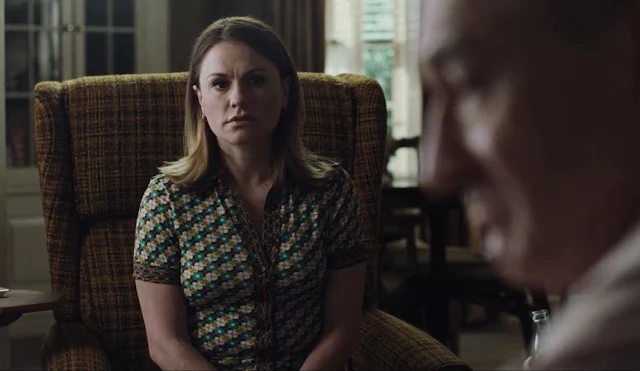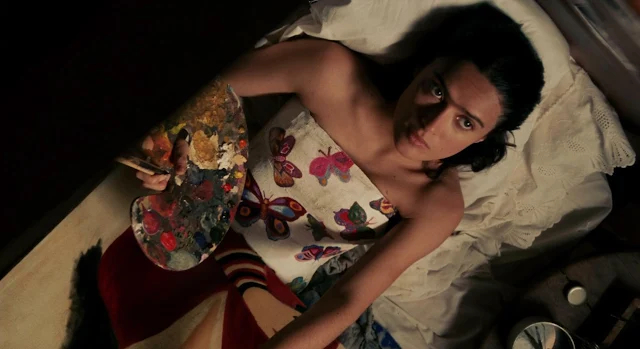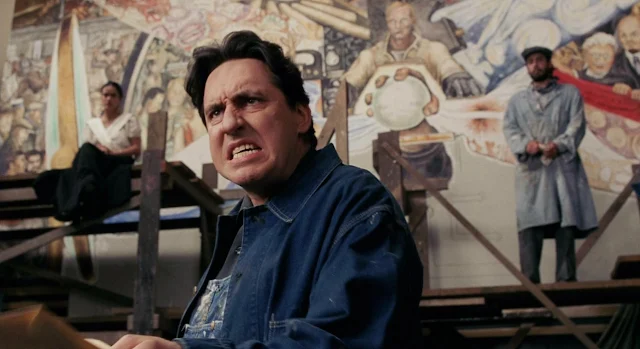A blog formerly known as Bookishness / By Charles Matthews
"Dazzled by so many and such marvelous inventions, the people of Macondo ... became indignant over the living images that the prosperous merchant Bruno Crespi projected in the theater with the lion-head ticket windows, for a character who had died and was buried in one film and for whose misfortune tears had been shed would reappear alive and transformed into an Arab in the next one. The audience, who had paid two cents apiece to share the difficulties of the actors, would not tolerate that outlandish fraud and they broke up the seats. The mayor, at the urging of Bruno Crespi, explained in a proclamation that the cinema was a machine of illusions that did not merit the emotional outbursts of the audience. With that discouraging explanation many ... decided not to return to the movies, considering that they already had too many troubles of their own to weep over the acted-out misfortunes of imaginary beings."--Gabriel García Márquez, One Hundred Years of Solitude
Search This Blog
Showing posts with label Rodrigo Prieto. Show all posts
Showing posts with label Rodrigo Prieto. Show all posts
Thursday, December 5, 2019
The Irishman (Martin Scorsese, 2019)
The Irishman (Martin Scorsese, 2019)
Cast: Robert De Niro, Al Pacino, Joe Pesci, Harvey Keitel, Ray Romano, Bobby Canavale, Anna Paquin, Stephen Graham, Stephanie Kurtzuba, Jack Huston, Kathrine Narducci, Jesse Plemons, Dominick Lombardozzi, Paul Herman, Gary Basaraba. Screenplay: Steven Zaillian, based on a book by Charles Brandt. Cinematography: Rodrigo Prieto. Production design: Bob Shaw. Film editing: Thelma Schoonmaker. Music: Robbie Robertson.
The Irishman feels valedictory, and not just because it's about gangsters growing old, but also because it's about the kind of gangsters Martin Scorsese and others introduced us to as well as the aging actors who played them: De Niro, Pacino, Pesci, Keitel. And also because it feels like Scorsese's farewell to conventional theatrical release. Movie theaters today thrive on the kind of blockbusters Scorsese has recently dismissed as "not cinema" and more like theme parks. His collaboration with the king of home streaming services, Netflix, seems to announce that a new era of movie distribution and exhibition has arrived -- one in which the old limitations of film content and even length no longer apply. Scorsese recently said that The Irishman's three-and-a-half-hour length would probably hinder its release in today's theaters, where the only movies that long are ones like the three-hour Avengers: Endgame, a "theme park" movie. Exhibitors want films that fit tightly into a schedule, which discourages producers from making epic-length features like Lawrence of Arabia (David Lean, 1962). Netflix audiences, on the other hand, can watch on their own time, with the leisure to interrupt the film at any point for a snack or bathroom break. So a movie like The Irishman, which has an epic length but also a subtle, intimate treatment of its characters, doesn't fit in today's theaters. What's lost, of course, is the communal experience of moviegoing, the sharing by complete strangers of dreams in the dark. But we should be glad that anything makes movies like The Irishman possible. I don't know if it's a "masterpiece," as some enthusiasts have called it, but it's a damn good movie, with the best performances by De Niro and Pacino in years, and a wonderful return from semi-retirement by Pesci, who tamps down his usual ebullience for a quietly sinister but also, in later scenes, touching portrayal of a mob manipulator. The whole thing is a kind of morality tale, with De Niro's Frank Sheeran paying for his many sins by waiting for death in an existential loneliness. It takes a wizard like Scorsese -- helped by Steven Zaillian's screenplay -- to keep that kind of fable from going mawkish and sentimental.
Wednesday, October 30, 2019
Frida (Julie Taymor, 2002)

Frida (Julie Taymor, 2002)
Cast: Salma Hayek, Alfred Molina, Mia Maestro, Diego Luna, Valeria Golino, Roger Rees, Ashley Judd, Antonio Banderas, Edward Norton, Geoffrey Rush. Screenplay: Clancy Sigal, Diane Lake, Gregory Nava, Anna Thomas, based on a book by Hayden Herrera. Cinematography: Rodrigo Prieto. Production design: Felipe Fernández del Paso. Film editing: Françoise Bonnot. Music: Elliot Goldenthal.
I usually don't like biopics, with their lurches back and forth between trauma and triumph and their subordination of fact to drama. But I admired Julie Taymor's attempt to integrate Frida Kahlo's life with her work, or really to interpret the latter through the former. I think Taymor falls into the inevitable trap of spending more time on her subject's love life than on her actual work, but Salma Hayek and Alfred Molina are so skillful in displaying the passion and volatility of the film's versions of Frida and Diego Rivera that I can forgive the emphasis on that relationship. Taymor and the screenwriters are less successful in integrating the political aspect of their lives, with its culmination in Frida's affair with Trotsky, played a little remotely by Geoffrey Rush. But the film thrives on its visuals, integrating Frida's paintings with her life, and by the evocative use of color to denote the emotional states of its subject. The trolley accident that marked Frida's life is superbly staged and edited, followed by a brilliant use of Day of the Dead images to suggest Frida's delirium as she undergoes treatment. Frida's greatest success is that it will be hard for me to look at her paintings again without summoning up memories of the film.
Wednesday, October 26, 2016
21 Grams (Alejandro González Iñárritu, 2003)
 |
| Melissa Leo and Benicio Del Toro in 21 Grams |
Cristina Peck: Naomi Watts
Jack Jordan: Benicio Del Toro
Mary Rivers: Charlotte Gainsbourg
Michael: Danny Huston
Marianne Jordan: Melissa Leo
Director: Alejandro González Iñárritu
Screenplay: Guillermo Arriaga
Cinematography: Rodrigo Prieto
Music: Gustavo Santaolalla
An egg is an egg no matter how you scramble it. You can whip it into a meringue or a soufflé or an omelet, but it still retains its eggness. The same thing, I think, is true of melodrama: There's no disguising its improbabilities and coincidences, its short cuts around motive and characterization, its intent to surprise and shock. Mind you, I don't have anything against melodrama. Some of my favorite films are melodramas, just as some of our greatest plays, even some of Shakespeare's tragedies, are grounded on melodrama. It's just that you have to approach it without pretension, which is, I think, the chief failing of Alejandro González Iñárritu's 21 Grams. The melodramatic premise is this: The recipient of a heart transplant falls in love with the donor's widow, who then persuades him to try to kill the man who killed her husband. It's the stuff of which film noir was made, but Iñárritu takes screenwriter Guillermo Arriaga's premise and scrambles it, using non-linear narrative devices -- flashbacks and flashforwards -- and casting an unrelievedly dark tone over it, as well as reinforcing a pseudoscientific message in the title, which is explicated at the end of the film. In 1907, a Massachusetts physician named Duncan MacDougall tried to weigh the human soul: He devised a sort of death-bed scales, which would register any loss of weight at the moment a patient died, thereby demonstrating to his satisfaction -- if not to the medical and scientific communities -- that the weight of the soul was approximately three-quarters of an ounce, or 21 grams. I suspect that Arriaga and Iñárritu meant the allusion to this bit of nonsense metaphorically, but it doesn't come off that way. By the end of the film, we are so weighed down with the misery of its protagonists that it feels like sheer bathos. This is not to say that 21 Grams is a total loss as a film. Iñarritu is one of our most celebrated contemporary directors, with back-to-back Oscars for Birdman (2014) and The Revenant (2015) to prove it. I just don't think he's found himself yet, but has become too caught up in narrative gimmicks that prevent him from delivering a completely satisfying film. There is much in 21 Grams to admire: The performances of Sean Penn, Naomi Watts, Benicio Del Toro, and Melissa Leo are as fine as their reputations suggest they would be. The narrative tricks are done with great skill, especially with the aid of cinematographer Rodrigo Prieto, who uses color to make each of the narrative segments distinct from the others, so that when the film cuts from one to another, the viewer feels better oriented. And there's no denying the emotional impact of the film as a whole. It could hardly be otherwise, given the pain suffered by the protagonists: Cristina, who lost her husband and her two little girls; Jack, the ex-con who accidentally killed them and believes that it was all because Jesus wanted it to happen; and Paul, who finds his chance at a new life marred by knowledge that it was at the expense of other people's happiness. But in the end, all of this suffering is off-loaded onto us without any compensatory feeling of having been enlightened by it.
Subscribe to:
Comments (Atom)







































